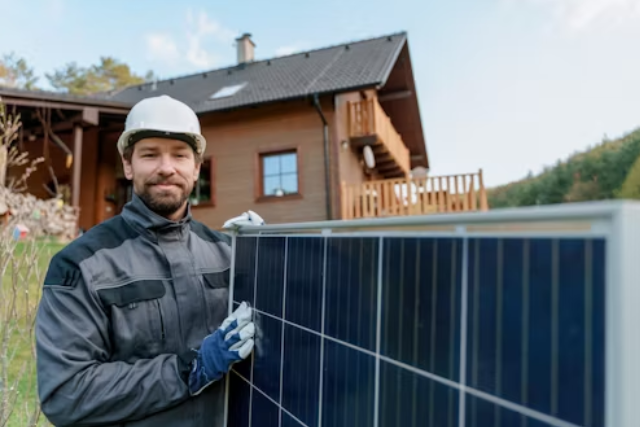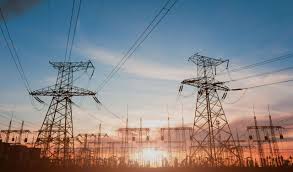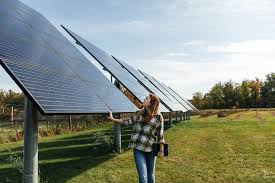
The construction and home improvement industry in Washington State is about to experience a significant boost. The Washington State Department of Commerce has officially launched the Qualified Contractor Network (QCN) application process, creating new opportunities for contractors to participate in federally-funded home energy rebate projects stemming from the Inflation Reduction Act (IRA).

This groundbreaking initiative represents millions of dollars in potential work for qualified contractors across the state, focusing on energy efficiency improvements that will help homeowners reduce their carbon footprint while creating substantial business opportunities for the construction sector.
The Qualified Contractor Network is Washington State's gateway for contractors to become eligible for IRA Home Energy Rebate projects. This program is designed to connect qualified, licensed, and insured contractors with homeowners seeking energy efficiency upgrades through federal rebate programs.
The initiative targets specific trades essential to home energy improvements, including electrical contractors, HVAC specialists, plumbing contractors, insulation and air sealing professionals, energy auditors, and general construction contractors. By establishing this network, the state ensures that rebate recipients work with qualified professionals who meet strict licensing, insurance, and bonding requirements.
The QCN is specifically seeking contractors in six key areas:
Electrical Contractors: Professionals handling electrical panels, wiring, and electrical components of energy-efficient installations.
HVAC Contractors: Specialists in heating, ventilation, and air conditioning systems, particularly heat pump installations.
Plumbing Contractors: Licensed professionals capable of handling heat pump water heater installations and related plumbing work.
Insulation and Air Sealing Contractors: Experts in building envelope improvements that enhance home energy efficiency.
Energy Auditors: Certified professionals who conduct comprehensive home energy assessments.
General and Specialty Construction Contractors: Project managers and supervisors who oversee multi-trade energy efficiency projects.
The QCN maintains strict licensing requirements that vary by trade specialty. Understanding these requirements is crucial for successful application.

Those focusing on project management or primarily subcontracting must hold a Washington Construction Contractor Registration as a General Construction Contractor (01). It's important to note that registered general contractors may submit bids for electrical and plumbing work but must subcontract such work to appropriately licensed specialists.
Contractors performing electrical panel and wiring work must possess appropriate Washington Electrical Contractor Licenses, including General Electrical (01) or Residential Specialty (02) classifications. The state provides detailed scope of work regulations under WAC 296-46B-920.
This emerging field requires either electrical or plumbing contractor licenses. Electrical contractors need General Electrical (01) or Residential Specialty (02) licenses, while plumbing contractors require General (01) or Residential (02) plumbing licenses. Special exemptions apply for certain repair and replacement scenarios, though new installations require full licensing compliance.
Heat pump installers must demonstrate electrical contractor licensing credentials, including General Electrical (01), Residential Specialty (02), HVAC/Refrigeration Specialty (06A), or HVAC/Refrigeration Restricted Specialty (06B) classifications. Additionally, Washington Construction Contractor registration for HVAC/Refrigeration Specialty (SM) may be required.
The state strongly encourages additional certifications such as BPI AC/Heat Pump, North American Technician Excellence (NATE) Heat Pump, or manufacturer-specific training, though these aren't mandatory.
These contractors need Washington Construction Contractor registration as General Construction Contractors (01) or specialized insulation and acoustical specialty contractors. Importantly, contractors must demonstrate building envelope work experience on at least 10 single-family homes or 50,000 square feet of multifamily projects. This experience requirement involves self-attestation with documentation available upon request.
Energy auditors must hold recognized certifications from established organizations, including Building Performance Institute (BPI) Building Analyst, BPI Energy Auditor, Association of Energy Engineers (AEE) Certified Energy Auditor, ASHRAE Building Energy Assessment Professional, HERS Program Rater, LEED Rater, or Investor Confidence Project (ICP) QA Assessor credentials.
The QCN requires comprehensive insurance coverage and surety bonds that vary by trade classification.
Most trades require $200,000 in public liability coverage and $50,000 property damage coverage, or $250,000 combined single limit coverage. Energy auditors face higher requirements at $1,000,000 combined single limit coverage.
Bond requirements range from $4,000 for electrical contractors to $30,000 for general contractors. HVAC and insulation contractors require $15,000 bonds, while plumbing contractors need $6,000 bonds. Energy auditors are exempt from bonding requirements.
The online application process requires careful preparation and documentation. Contractors should gather business information including Washington Unique Business Identifier (UBI) numbers, contractor license numbers, employee counts, and service areas.
Applications must include copies of Washington Business License UBI, contractor/tradesperson licenses, proof of insurance, surety bonds, and relevant certifications. Optional certifications for Minority and Women-Owned Businesses, Veteran-Owned Enterprise, or Small Business Enterprise designations can enhance applications.
Commerce commits to reviewing applications within 14 business days, though complex applications may require additional time. The department requests patience as they work through the initial application volume.
Applications missing required documentation will be returned via email, with contractors having 10 business days to provide missing information. Applications not completed within this timeframe face rejection.
Approved contractors receive comprehensive program guides and training covering invoicing procedures, marketing materials, rebate processes, incentive structures, payment procedures, and consumer protection requirements. The rebate administrator provides contractor handbooks and conducts specialized training sessions.
The IRA Home Energy Rebate programs represent substantial business opportunities for qualified contractors. These federally-funded programs address growing consumer demand for energy efficiency improvements while providing financial incentives for homeowners to upgrade their properties.
Contractors joining the QCN gain access to a steady stream of qualified leads, standardized processes, and marketing support. The program's structure helps level the playing field by ensuring all network contractors meet identical professional standards.
The Washington State Department of Commerce provides extensive support for QCN applicants and participants. Monthly virtual office hours occur on the second Tuesday of each month from 12 p.m. to 1 p.m., offering direct access to program administrators.
Additional resources include comprehensive application checklists, walkthrough videos, contractor requirement guides, and program overviews. A dedicated contractor support form provides ongoing assistance for questions and issues.
The QCN represents a significant shift toward professionalized energy efficiency work in Washington State. By establishing strict qualification standards, the program elevates industry standards while creating sustainable business opportunities for qualified contractors.
This initiative aligns with broader trends toward building electrification, energy efficiency, and climate action goals. Contractors who establish themselves in this network position themselves advantageously for continued growth in the evolving energy efficiency market.
The program's success in Washington may serve as a model for other states implementing similar IRA-funded initiatives, potentially expanding opportunities for contractors who demonstrate expertise in this specialized field.
The Qualified Contractor Network represents a transformative opportunity for Washington State contractors to participate in federally-funded energy efficiency programs. Success requires careful attention to licensing requirements, insurance obligations, and application procedures, but the potential rewards justify the investment in meeting these professional standards.
Contractors interested in joining this network should begin gathering required documentation immediately and consider pursuing additional certifications that enhance their competitiveness. With proper preparation and commitment to professional excellence, the QCN offers a pathway to sustainable growth in the expanding energy efficiency sector.
Q: How long does the QCN application process take? A: Commerce commits to reviewing applications within 14 business days, though complex applications may require additional time. Incomplete applications are returned within this timeframe with 10 business days allowed for corrections.
Q: Can I apply if I don't have all required certifications yet? A: No, all licensing and certification requirements must be met before application submission. Expired or missing credentials will result in application rejection.
Q: What happens if my application is rejected? A: Rejected applicants receive detailed explanations of deficiencies and information about reapplication eligibility. Common rejection reasons include expired licenses, inadequate insurance, or inclusion on debarred contractor lists.
Q: Are the insurance and bonding requirements in addition to state minimums? A: These requirements may exceed or supplement existing state minimums. Contractors should verify that their current coverage meets QCN standards for their specific trade classifications.
Q: Can I work on projects outside my licensed specialty? A: No, contractors must work within their licensed scope of practice and subcontract work requiring different licenses to appropriately credentialed professionals.
Q: How much work can I expect once approved? A: Work volume depends on program participation rates, geographic location, and market demand. The program is designed to provide steady opportunities for qualified network contractors.
Q: Are there ongoing requirements after approval? A: Yes, approved contractors must maintain current licenses, insurance, and bonding while participating in required training programs and following established procedures.
Q: Can out-of-state contractors apply? A: The program requires Washington State contractor licensing and business registration, effectively limiting participation to in-state contractors or those willing to obtain Washington credentials.
Q: What types of projects will be available? A: Projects focus on energy efficiency improvements including heat pump installations, electrical upgrades, insulation and air sealing, water heater replacements, and comprehensive energy audits.
Q: How do I stay updated on program developments? A: Monitor www.commerce.wa.gov/QCN, attend monthly virtual office hours, and subscribe to program updates through the Department of Commerce communication channels.
Originally reported by Washington State Department Of Commerce.